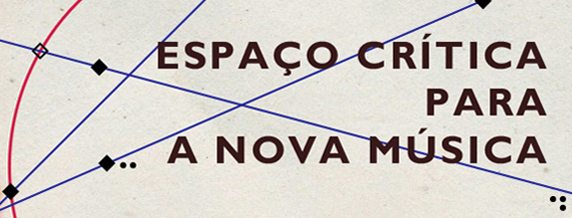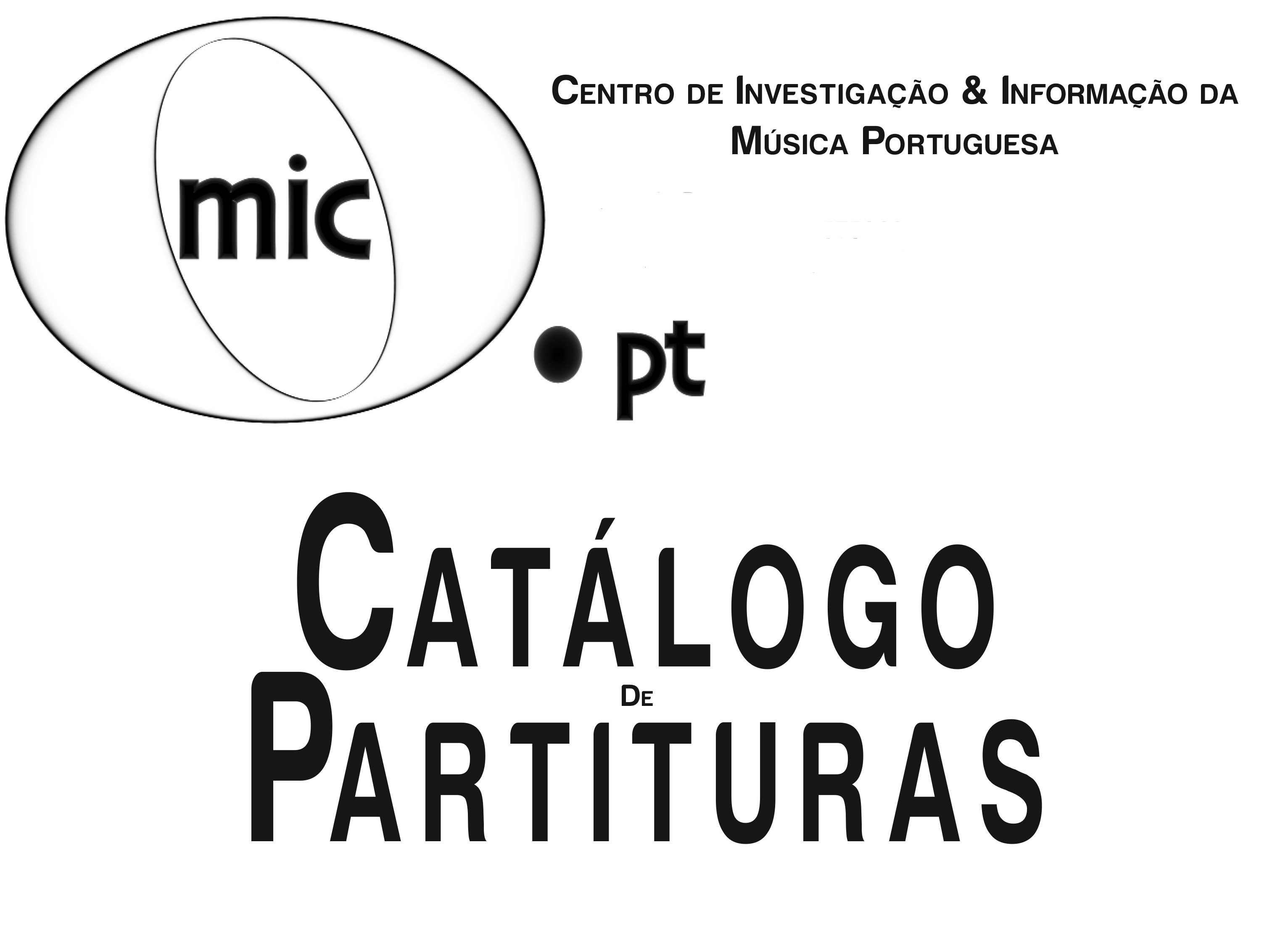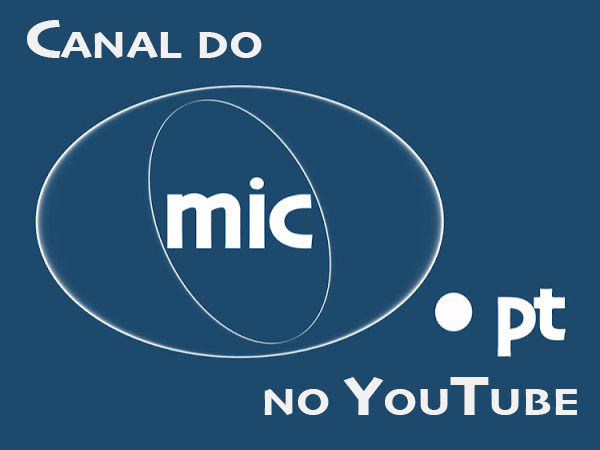Questionnaire / Interview
Part 1 - roots and education
How did music begin for you?
My first contact with music occurred with Beethoven and Amália's fados… Perhaps it is a strange connection at the outset, but this was what my mother used to listen to. Since very young I learned by heart, and "air conducted" Beethoven's symphonies and "endured" the fado (longing) of Amália's fados… I started going regularly to Gulbenkian Orchestra's concerts at the age of nine, and only two years after I began studying music at the Academia de Amadores de Música. We had a piano at home… thus it was natural for me to start studying piano. My musical education began through the “act of listening” and I owe this to my Mother (… and to Beethoven). I am a musician thanks to what my Mother gave me, to the different doors she was opening to me when I was growing up. Composition came later...
Which moments from your musical education are the most important to you?
One of the first moments was the awareness that I would not have the capacity to be a performer, not for lack of talent, but rather for a psychological reason. To play an instrument in any kind of repertoire for others to listen to, was (is!) an hellish nightmare. I could not control my hands and rarely was able to get focused in the moment and dedicate myself completely to it. Probably, this is why I have so much appreciation and respect for performers, and above all, for the ones who do it and have the ability to add something else, which is truly theirs. Failing to be only a mere listener or critic / commentator (which would mean for me, at that time, studying Musicology), I desired to make something that I could put my “hands on” and give expression to the childish pianistic ventures, which I had always performed since very young. It was then I met Pedro Rocha who was my teacher of Analysis and Composition Techniques at the Academia. It was him who opened the “doors” for composition for me. Other moments were, my admission at Escola Superior de Música de Lisboa, and the privileged contact with such teachers as Christopher Bochmann, who taught me the fundamental aspects of composition techniques and planted the foundations in order to acquire a "métier"; with António de Sousa Dias came electroacoustic music… and with António Pinho Vargas the "whys" (…) and the formal control.
Part 2 - influences, aesthetics
Which references do you assume in your compositional practice?
There is a work by Gérard Grisey, which I do not let myself listen to very often because of the, so called, "anxiety of influence" (Harold Bloom). The work is "Vortex Temporum", it has three movements - the second one is dedicated to Salvatore Sciarrino and the third to Helmut Lachenmann. The mentioning of this work is only a way of presenting these three composers who have been my references and they could not have been more diverse… Yet the sound as a departure point for composition and/or development is common. And here my work with electroacoustic music is essential. Being composer of mixed music (in other words, the combination of acoustic and electronic instruments), it is essential for me to understand how the sound phenomenon functions. It is the "hands on" with which we tend to cope initially, when we write "the" first note in the score. Having knowledge on the sound, the hypotheses of development multiply ("the" terrible "second note"), and it complicates the choice.
Some would say that due to its nature music is essentially incapable of expressing anything nor emotion, mental attitude, psychological disposition, nor any natural phenomenon. If music seems to express something, it is only an illusion and not reality. Could you define, in this context, your aesthetic stance?
I am a human being and I write music for human beings. The hypothesis that music is not capable of expressing anything is incomplete in this interaction between human beings. (They have a tendency to be quite complex…) Music is certainly not objective. Every listener feels it as he/she wants or is able to. Usually, I do not write explanations or programme notes because they are always a conditioning of the work's fruition. I do not want, nor do I have the right to impose my vision on others… Actually, "the whys" do not have to be shared openly, but only through the work. It is for the "Is" to discover the "whys"…
Are there any extra-musical sources, which in a significant manner influence your work?
There is one, obviously… my life.
Part 3 - language and compositional practice
What is your relation with new technologies and how do they influence your composition?
Every time a new instrument appears there is a tendency to explore it up to its limits… more than often, these explorations tend to get away from what we intend to do: Music. This happened throughout the whole course of History and it will always happen. With the technological advances of the last twenty years we are confronted everyday with new ideas, new concepts and new ways of doing things… The tendency to consider technology as an end, (however much of it not assumed) is natural… But I try not to forget - the computer is a mean (nowadays), just as a bassoon, a flute or a violin…
Part 4 - Portuguese music
What do you think of the current situation of Portuguese music?
Throughout my first years as composer, it was possible for me to work thanks to some entities and friends who asked me to write music to be performed by them or presented during the concerts and festivals they organize. The Machina Mundi Duo, Pedro Rodrigues (guitar), Teresa Matias (flute), the Lisbon Sinfonietta and the Ricercare Choir, the OrchestrUtopica, the Miso Music Portugal, are only some of the (many) friends who made it possible for me and inspired me to write. I owe them a lot, and particularly to Miso Music, for creating conditions, which allowed me to learn, evolve and have my music performed. What I mean is there is a lot of willingness to make music in Portugal. The education is getting better, the proliferation of highly skilled musicians is increasing, and the potential is enormous! In a country where, for practical effects, the culture as a whole is something secondary, the effort of these musicians and entities becomes inglorious, and (too) many times not recognized. This problem is not new and it is not only political nor financial; it is also social and goes back to a distant past. The mentality should change. But, nevertheless, there is always someone who believes…
Part 5 - present and future
What are your current and future projects?
Presently, I am at the writing stage of my PhD thesis "Mixed Music and Dynamic Relation Systems"… It is quite a pompous title (and somewhat misleading), only to state that we humans should make music. And as for the future… I always will have music to write…
José Luís Ferreira, October 2013
© mic.pt





